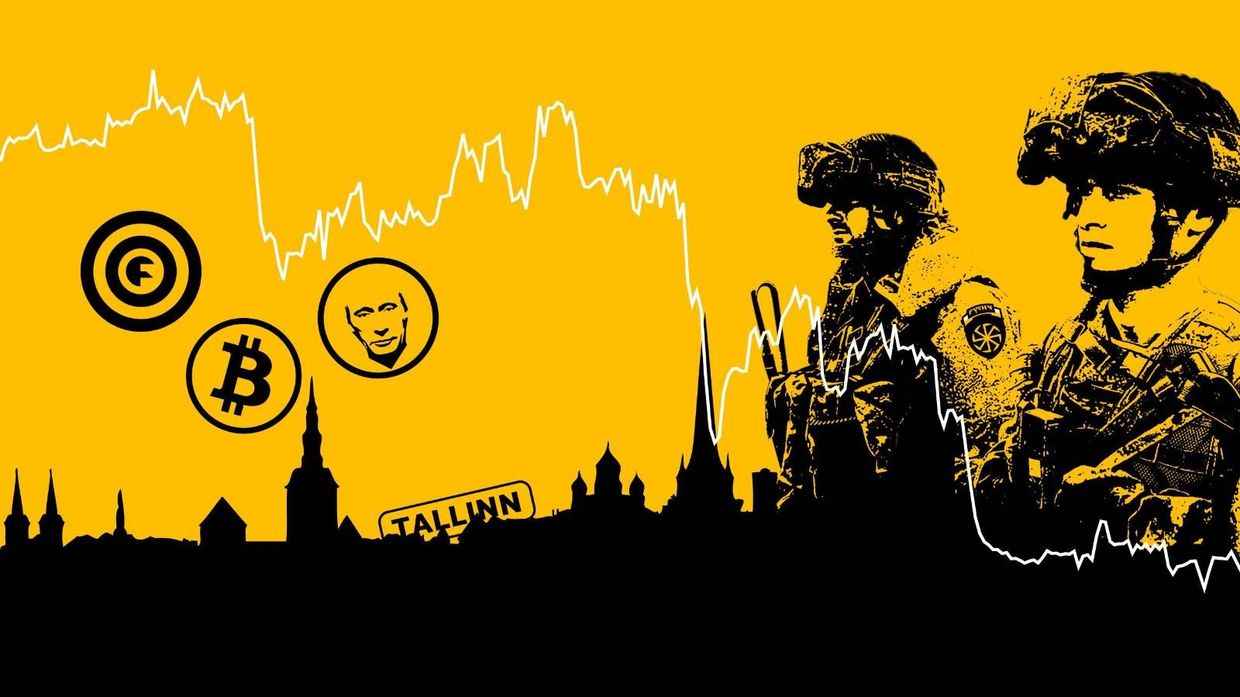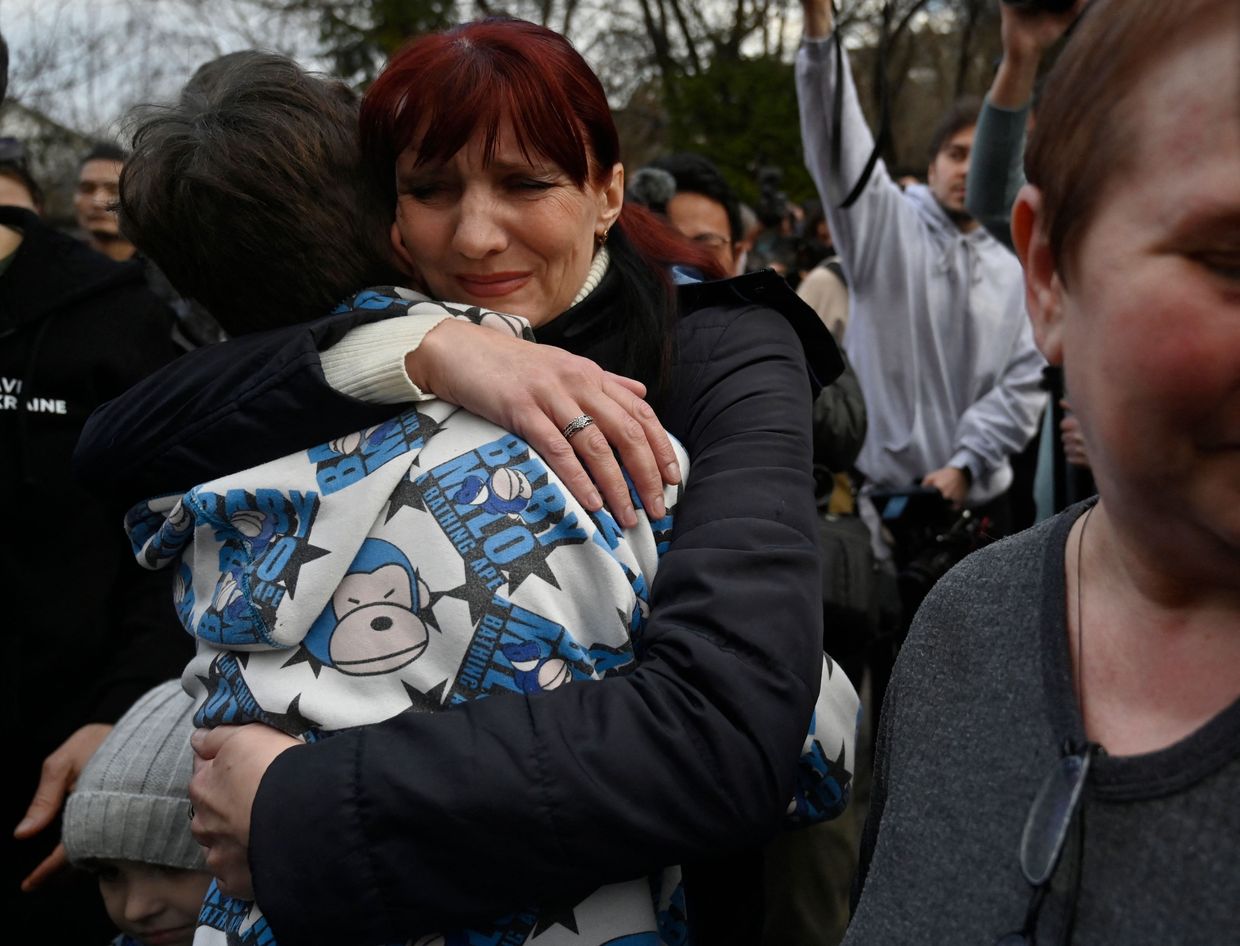Ukraine war latest: Russia kills 52 people in single deadliest attack against civilians this year

Editor's note: This article contains graphic images. The Kyiv Independent doesn't blur these images. We show Russia's war as it is.
Key developments on Oct. 5:
- Russia attacks the village of Hroza in Kharkiv Oblast, killing 52 people, injuring 6
- Zelensky visits Spain for European Political Community Summit, receives more support from European officials
- Spain says it will provide Ukraine with more Hawk air defense systems
- Ukraine appoints 3 new new deputy defense ministers
- NGO rescues 19 more children from Russian occupation
Russian forces hit a grocery store and a cafe in the village of Hroza, Kharkiv Oblast, killing 51 people and injuring six, including children, on Oct. 5.
This number rose to 52 people after one person died of their injuries on Oct. 6, Kharkiv Oblast Governor Oleh Syniehubov reported on Telegram.
The attack wiped out over half of the village's population, in what became the single deadliest Russian attack against civilians in 2023.
While Interior Minister Ihor Klymenko initially said the population of Hroza was over 300 people, a Kharkiv Oblast Prosecutor's Office spokesman later clarified that the number of people living in the village just before the attack didn't exceed 100.
"The Russian army killed most residents of this village with one rocket," Dmytro Chubenko said on national TV.
The strike occurred at around 1:15 p.m. when at least 60 people gathered at a local cafe for a memorial service for a deceased resident, Klymenko said on national television.
The attack was likely carried out with an Iskander ballistic missile, Klymenko added.
Among those killed is a six-year-old boy, Kharkiv Oblast Syniehubov reported on Telegram. Another child was injured, he said.
Syniehubov called it "the bloodiest crime committed by the Russians in Kharkiv Oblast since the start of the full-scale invasion."

He also announced a three-day mourning period in the region on Oct. 6-8.
At around 8 p.m., Syniehubov reported that the rescue operation was over.
The small village of Hroza is located in northeastern Ukraine and lies around 30 kilometers west of Kupiansk.
Russia has been concentrating its forces around Kupiansk in Kharkiv Oblast since mid-July, trying to regain the positions lost during the Ukrainian surprise counteroffensive last autumn.
Kupiansk was liberated on Sept. 10 last year.
Also on Oct. 5, Illia Yevlash, the spokesperson for the Eastern Grouping of Forces, said that Russia is intensifying attacks in the Lyman-Kupiansk direction of the front line in Kharkiv and Luhansk oblasts, using both ground forces and air strikes.
President Volodymyr Zelensky called the Russian attack on Hroza a "completely deliberate act of terrorism."
"Russian terror must be stopped. All those who help Russia circumvent sanctions are criminals. Everyone who still supports Russia supports evil," Zelensky wrote.
"Russia needs this and similar terrorist attacks for only one thing — to make its genocidal aggression the new norm for the whole world."
Zelensky visits Spain, receives additional support from European officials
On Oct. 5, Zelensky arrived in the Spanish city of Granada for the third European Political Community Summit alongside some 50 European leaders to discuss the ongoing Russian invasion and other security issues.
There, Zelensky met with Spanish, Italian, and Armenian prime ministers, French President Emmanuel Macron, European Council President Charles Michel, German Chancellor Olaf Scholz, and others.
Zelensky said he and Sanchez discussed a new military aid package from Spain, which was said to include air defenses, artillery, and anti-drone systems.
Following Zelensky's bilateral meeting with Spanish Prime Minister Pedro Sanchez on the summit's sidelines, the Spanish government announced the provision of another six Hawk air defense systems for Ukraine.
"We are preparing to start negotiations on Ukraine's accession to the EU under the presidency of Spain. Thank you for supporting our endeavor," Zelensky wrote on Telegram.
According to the Spanish government's press release, the air defense systems will be provided to Ukraine to combat potential Russian bombings of civilian facilities and protect the new Black Sea corridor.
Zelensky also held his first meeting with Armenian Prime Minister Nikol Pashinyan, discussing the security situation in the South Caucasus, bilateral cooperation, and interregional economic projects.
"Ukraine is interested in the stability of the region and friendly relations with its countries," Zelensky wrote.
He also discussed the country's military needs and air defense capabilities, as well as the security situation in the Black Sea region with Macron.
Zelensky spoke with Italian Prime Minister Giorgia Meloni, discussing a new tranche of defense assistance from Italy, emphasizing air defense capabilities.
Upon announcing his arrival at the summit, Zelensky said that Kyiv's key priority in the upcoming talks is strengthening Ukrainian air defense capabilities ahead of the winter.
"We are working with partners to enhance the European security architecture, particularly regional security. Ukraine has substantial proposals in this regard," Zelensky wrote on social platform X, formerly known as Twitter.
Ukraine appoints 3 new new deputy defense ministers
The Ukrainian government announced on Oct. 5 that it had appointed Ivan Havryliuk, Stanislav Haider, and Dmytro Klimenkov as new deputy defense ministers as part of recent personnel changes in the Defense Ministry.
According to Defense Minister Rustev Umerov, Havryliuk would be responsible for the ministry's military-technical policy, Klimenkov for procurement, and Haider for institutional development.
Umerov listed key priorities for the new appointees, such as restructuring Ukraine's defense industry according to NATO standards, standardization and digitalization of procurement processes, and ensuring transparency and accountability within the ministry.
"Procurement, military-technical policy, institutional development - we continue personnel changes in the Ministry of Defence. The result should be felt by every Ukrainian soldier at the front," Umerov wrote on Facebook.
The leadership of the Defense Ministry has been undergoing extensive personnel changes recently, starting with the resignation of Oleksii Reznikov as the ministry's head.
Reznikov was forced to step down following two major procurement corruption scandals and was replaced by Umerov early in September.
A few weeks later, the government dismissed six deputy defense ministers and the state secretary for defense.
Following their dismissal, Umerov said that the "reboot" of the Defense Ministry had begun.
Three other deputies – Yurii Dzhyhyr, Nataliia Kalmykova, and Kateryna Chernohorenko – were appointed on Sept. 27.
NGO rescues 19 more children from Russian occupation
Save Ukraine, a Ukrainian humanitarian non-governmental organization, said it had rescued 19 children from Ukrainian territories under Russian occupation, the organization's founder, Mykola Kuleba, reported on Oct. 5.
According to Kuleba, the latest 12th rescue mission brings the number of children the organization returned to 196. Among them are 46 orphans, he said.
On Facebook, Kuleba wrote that Ukrainian children who live in the temporarily occupied territories "suffer the most."
"No one cares about their rights there. Children are forced to go to Russian schools, to call Russian their native language, and to learn the history of the Russian Federation invented by propagandists," he wrote.
He also said that children cannot get medical care without getting a Russian passport.
"But orphans remain the most vulnerable in the occupation. No one cares about them, their relatives do not look for them, and it is much easier to re-educate them through propaganda," Kuleba wrote.
Also, Russia can forcibly deport Ukrainian children from occupied territories.
More than 19,500 children have been identified by the Ukrainian government as having been deported. Only 386 have been brought back to Ukraine, as the rescue missions are complicated.
In March, the International Criminal Court even issued arrest warrants for Russian Presidential Commissioner for Children's Rights Maria Lvova-Belova and Russian President Vladimir Putin for their involvement in the forced deportation of Ukrainian children during Russia's full-scale war against Ukraine.
Although Kuleba did not provide details on the latest rescue mission, he said there is a "long recovery process" ahead for the returned children.
"But these 19 young Ukrainians got a chance for a happy life," he wrote.
















